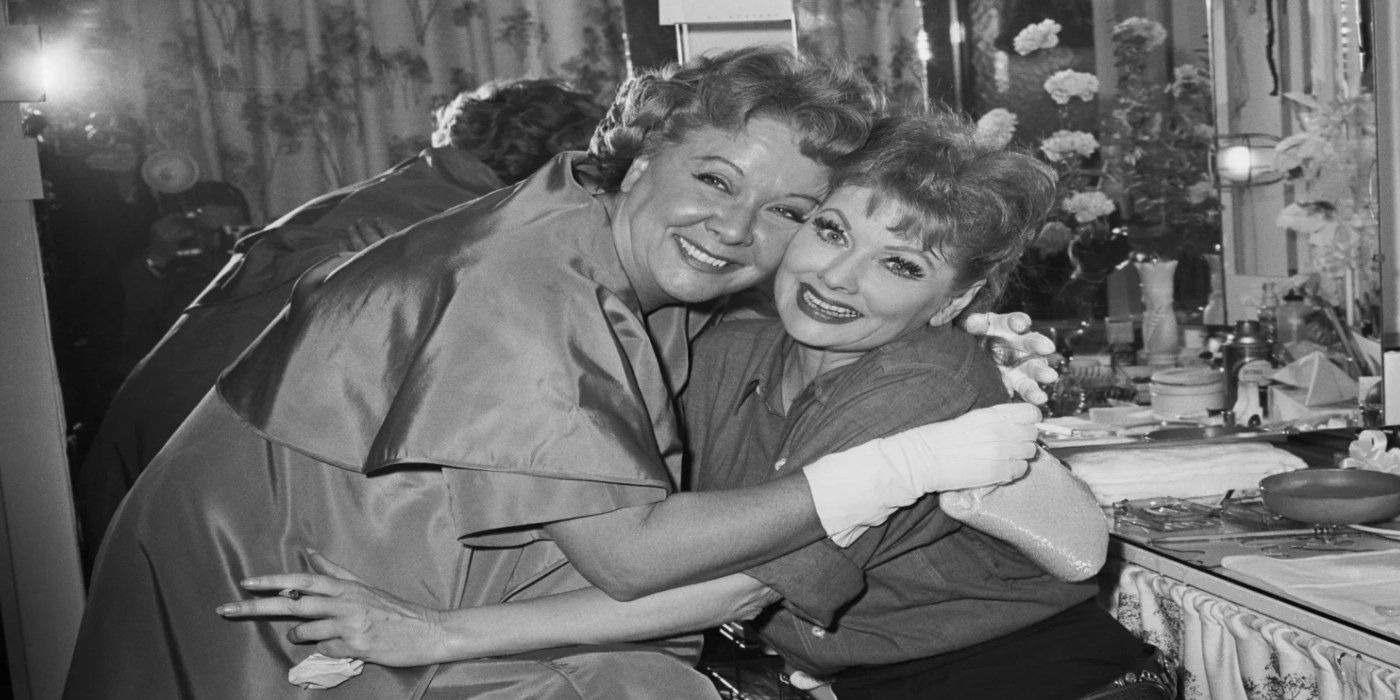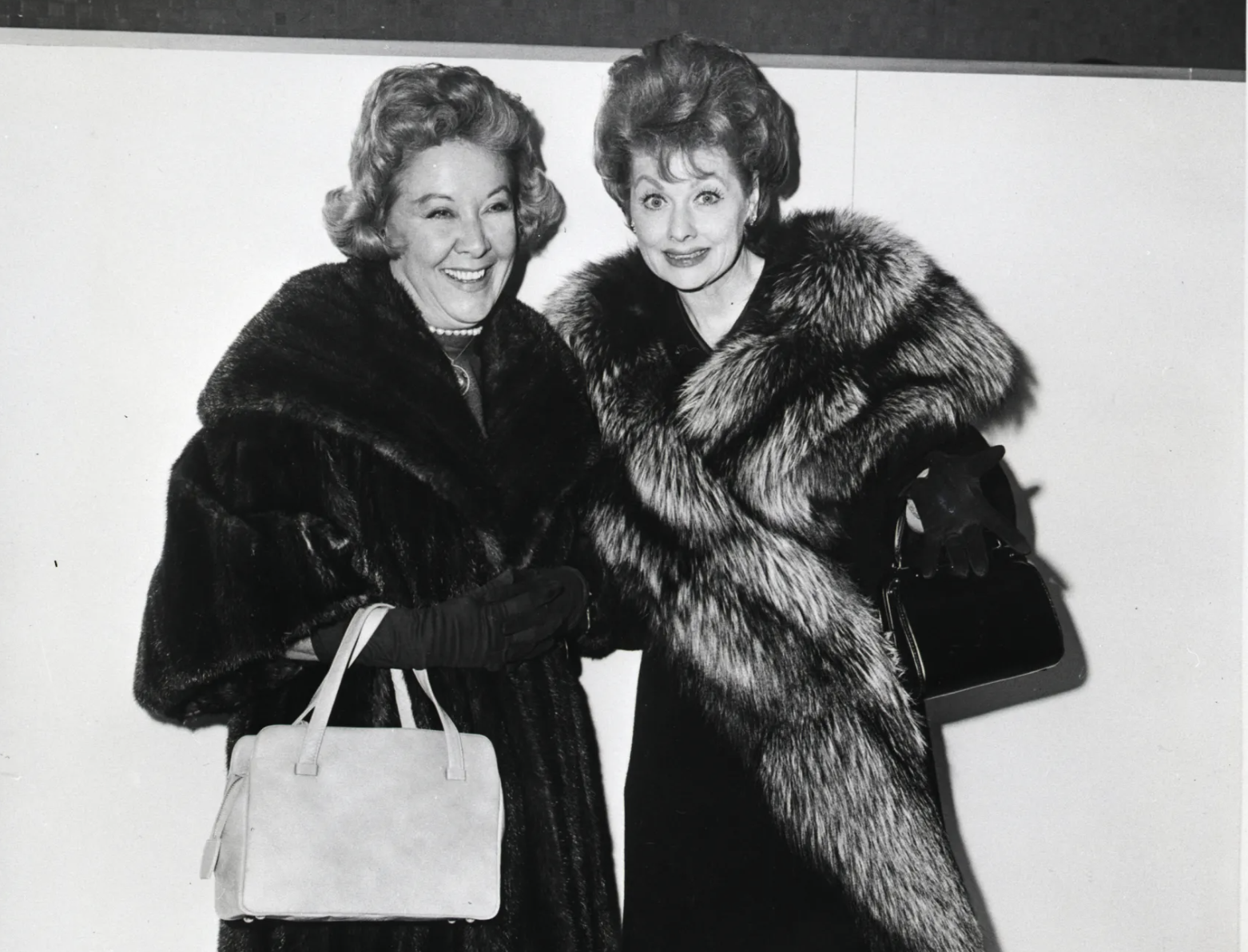
Lucille Ball and Vivian Vance: The Sisterhood That Powered ‘I Love Lucy’ On and Off Screen
In 1953, Lucille Ball gave her I Love Lucy co-star Vivian Vance a Christmas gift unlike any other—a custom-made scrapbook titled This Is Your Life — Vivian Vance. The heartfelt binder was filled with photos and mementos from Vance’s life, carefully collected by Ball, who had gone as far as reaching out to Vivian’s hometown for old dance programs and childhood photos. It was a gesture that spoke volumes—not just about friendship, but a bond that had quietly grown into sisterhood.
Less than two years before, Ball and Vance had barely known each other. But from the moment they shared a stage as Lucy Ricardo and Ethel Mertz, their connection became electric. And over the years, that on-screen chemistry blossomed into a powerful, enduring relationship that would carry them through fame, heartbreak, health struggles, and more than one painful divorce.
A Casting Surprise That Changed Everything
When Desi Arnaz, producer-director Marc Daniels, and writer Jess Oppenheimer cast Vance in 1950, Lucille was caught off guard. Expecting a dowdy, older actress to play the frumpy neighbor, Ball wasn’t thrilled to see the stylish and glamorous Vivian. “Only one person wears false eyelashes on this set—and that’s me,” Ball famously snapped.
Still, Vance was undeterred. “If this show goes,” she told the director, “I’m going to learn to love that bitch.” And she did—deeply.
It didn’t take long for Ball to recognize Vance’s talent and timing. As I Love Lucy continued, Ethel Mertz’s role grew, eventually forming one of the most iconic comedic duos in TV history. “As well as Lucille and Desi worked together, the better team was Lucy and Ethel,” said biographer Geoffrey Mark.
True Collaboration Behind the Comedy
Ball always credited the show’s success to strong writers and tight direction, but Vivian’s influence ran deeper. Off-screen, she was one of the few people Lucille trusted implicitly. “She could fix a script,” said longtime friend Michael Stern. “Lucille knew Vivian understood what made a scene click.” According to Ball’s assistant, Wanda Clark, the pair often huddled together between takes, tweaking scenes and strengthening punchlines. “Lucille called Vivian the best script doctor in town.”
And when the cameras rolled, their chemistry turned even the simplest scenes—like stuffing chocolates or stomping grapes—into unforgettable TV moments.
Standing by Each Other Through It All
Beyond the laughs, their friendship was a quiet refuge from the pressures of fame. Vance confided in Lucille about her 1945 nervous breakdown and ongoing battle with anxiety. Work, she said, gave her purpose—and Lucille gave her strength.
Lucille, in turn, leaned on Vivian during her crumbling marriage to Desi Arnaz. “Viv was like a sister to my mother,” said Lucie Arnaz. “She could talk to Mom like nobody else could.”
Vivian’s personal life was rocky, especially her third marriage to actor Philip Ober, whose jealousy and controlling behavior became toxic. “He was a terrible man,” Ball later said. “He embarrassed her, beat her—he made her miserable.” When Vance finally left him in 1959, Lucille was relieved.
Life Beyond Lucy
In 1962, when Lucille returned to television with The Lucy Show, she made one thing clear: she wouldn’t do it without Vivian. For three seasons, the two played single best friends navigating life, love, and motherhood. “I don’t think I’d be doing this if it hadn’t been for Viv,” Ball said.
Though Vance eventually left the show to focus on her marriage to literary editor John Dodds and a quieter life on the East Coast, she remained close to Lucille and her children. “She became ‘Aunt Viv’ to Lucie and Desi Jr.,” Stern recalled. “She encouraged Lucie to pursue theater, and Lucie still credits her for that.”
Vance made occasional guest appearances on Here’s Lucy, Ball’s third sitcom, and in 1977, despite battling breast cancer and Bell’s palsy, she joined Lucille one last time for the TV special Lucy Calls the President. “Even after 50 years in comedy, Lucille still wanted Vivian by her side,” said Stern, who was on set. “Lucille made sure the cameras didn’t show the palsy. She wanted her friend to feel beautiful.”
A Bond That Endured Until the End
Vivian Vance died in 1979 at the age of 66. Her passing left a deep void in Ball’s life. “She was protective of Vivian until the end,” Stern said. “Their friendship was rare, and everyone around them knew it.”
More than just co-stars, Lucille Ball and Vivian Vance were true partners. In front of millions, they were Lucy and Ethel—silly, scheming, and inseparable. Off-screen, they were women who supported, uplifted, and fiercely protected one another through the ups and downs of life. In every sense, they weren’t just friends. They were family.
